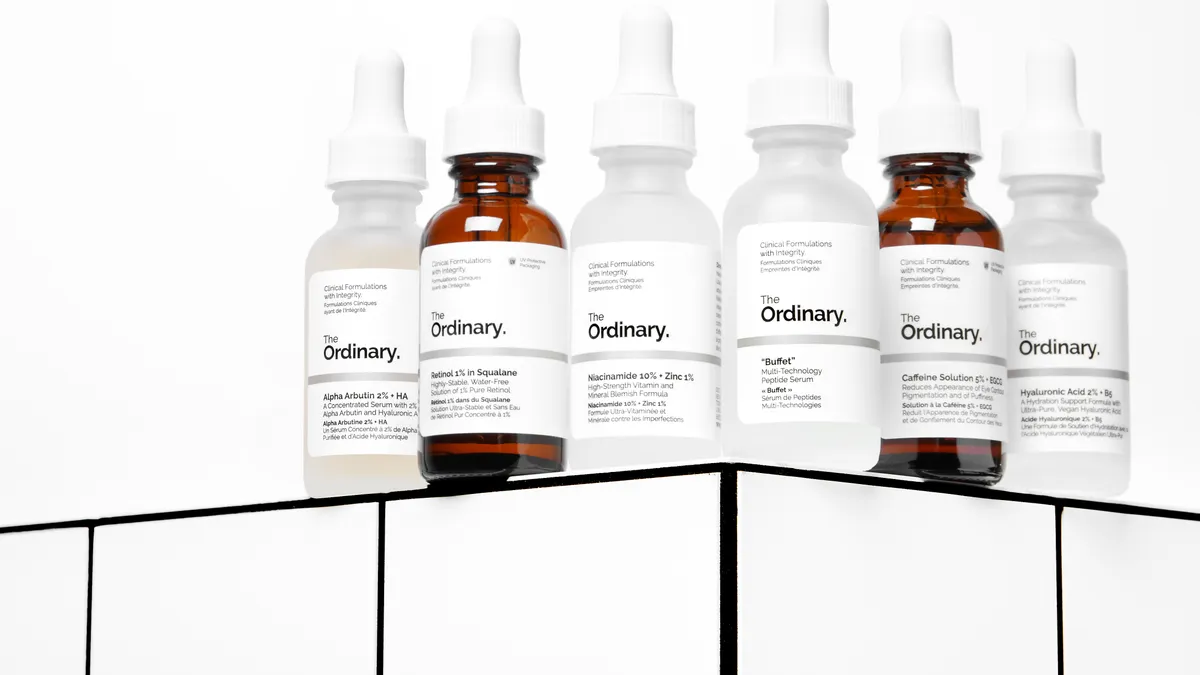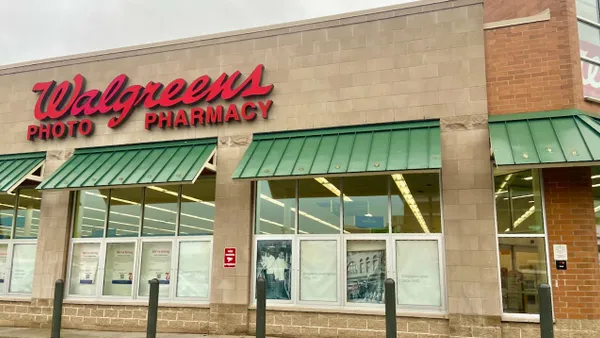Dive Brief:
-
Estée Lauder has agreed to pay $1 billion for a controlling stake in beauty company Deciem, the parent company of skincare brand The Ordinary and five others. The deal values Deciem at $2.2 billion, according to a company press release.
-
The $1 billion investment will increase Estée Lauder's stake from 29% to 76% and is expected to close by the end of June. Estée Lauder will buy the remaining interest in the company after three years, with the price determined by Deciem's future performance.
-
Deciem, founded in 2013, recorded net sales of $460 million in the past year. Estée Lauder first invested in the business in June 2017.
Dive Insight:
At a time when brands are scaling quickly online, amassing loyal followings through social media and word of mouth, beauty player Estée Lauder is banking on Deciem's potential to keep it ahead of the curve on trends.
Deciem CEO and co-founder Nicola Kilner said it was late founder Brandon Truaxe's dream to have the company end up at Estée Lauder. She now runs the company alongside Chief Scientific Officer Prudvi Kaka and Chief Operating Officer Stephen Kaplan.
Estée Lauder has worked closely with that team at Deciem for the past four years, said Estée Lauder President and CEO Fabrizio Freda, citing several factors that led to the company's success and made it a desirable acquisition for the traditional beauty manufacturer.
"Nicola and her team have built and cultivated authentic brands with highly effective, must-have products using a vertically integrated model, and have fostered a uniquely transparent and engaging communication style," Freda said in a statement. "The company's hero products, desirable innovation, and digital- and consumer-first high-touch approach have been instrumental to its success."
Estée Lauder called out Deciem's skincare brand The Ordinary particularly for having "impressive community- and referral-driven buzz" and a deep connection with its consumers. Most importantly, The Ordinary operates in a segment of beauty that's increasing in popularity at the moment. While makeup is in a downcycle, skincare is on the rise, with McKinsey expecting it to continue as young consumers adopt multi-step skincare routines. The segment has also benefited in the short-term from the pandemic because of its positioning as a self-care category.
Deciem, which focuses on "functional beauty," is therefore settled in a piece of the market that's growing. In countries outside the U.S., skincare also holds much greater sway. Researchers from McKinsey said in December that the split of makeup and skincare is about 50-50 in the U.S., while that ratio is closer to 80-20 in favor of skincare in China.
Estée Lauder is acquiring the popular beauty company at a time when DTC beauty brands are gaining popularity, snagging partnerships with the likes of Ulta and Sephora, and netting big funding rounds and valuations.















